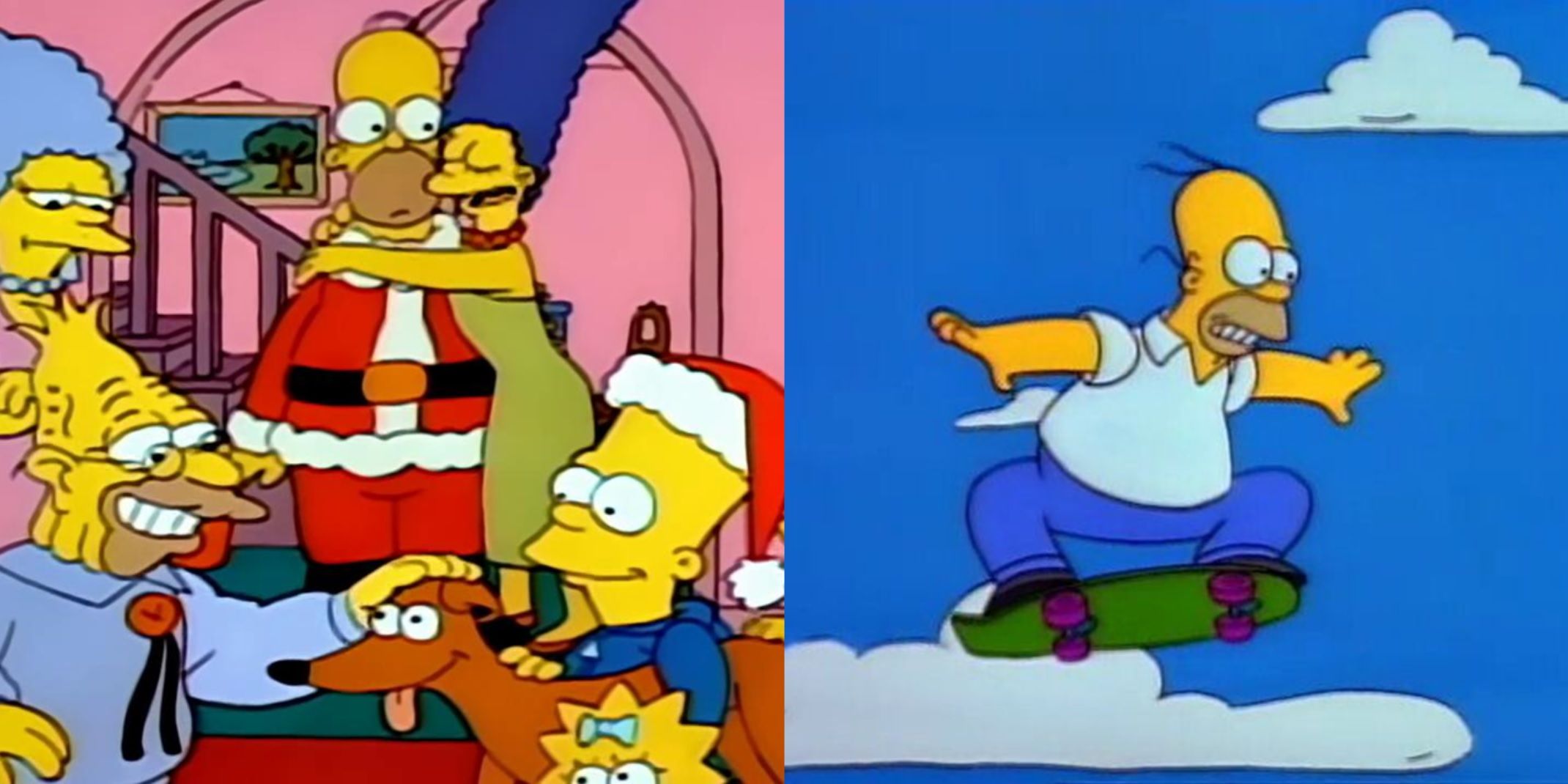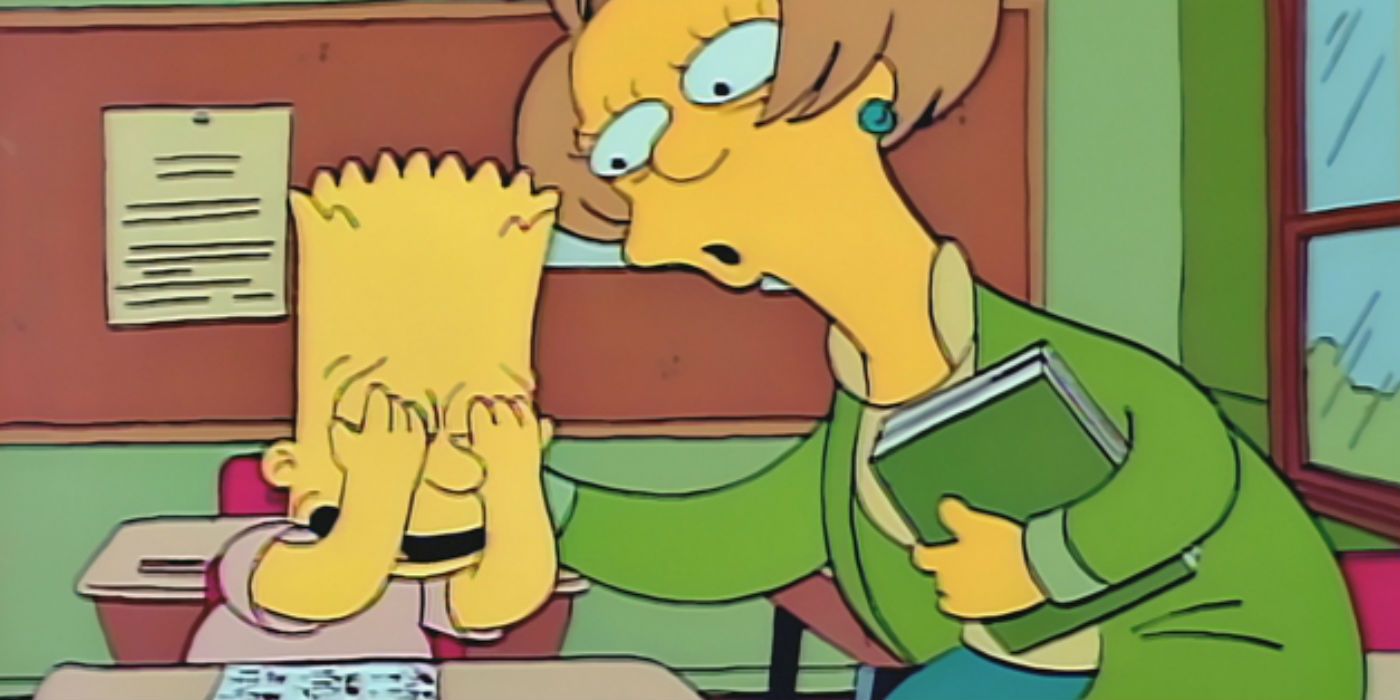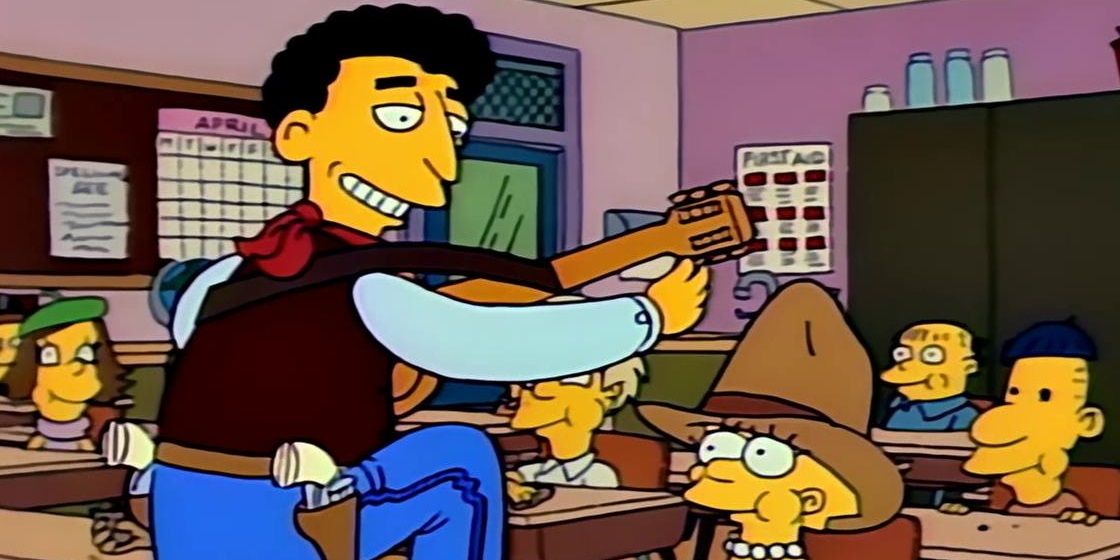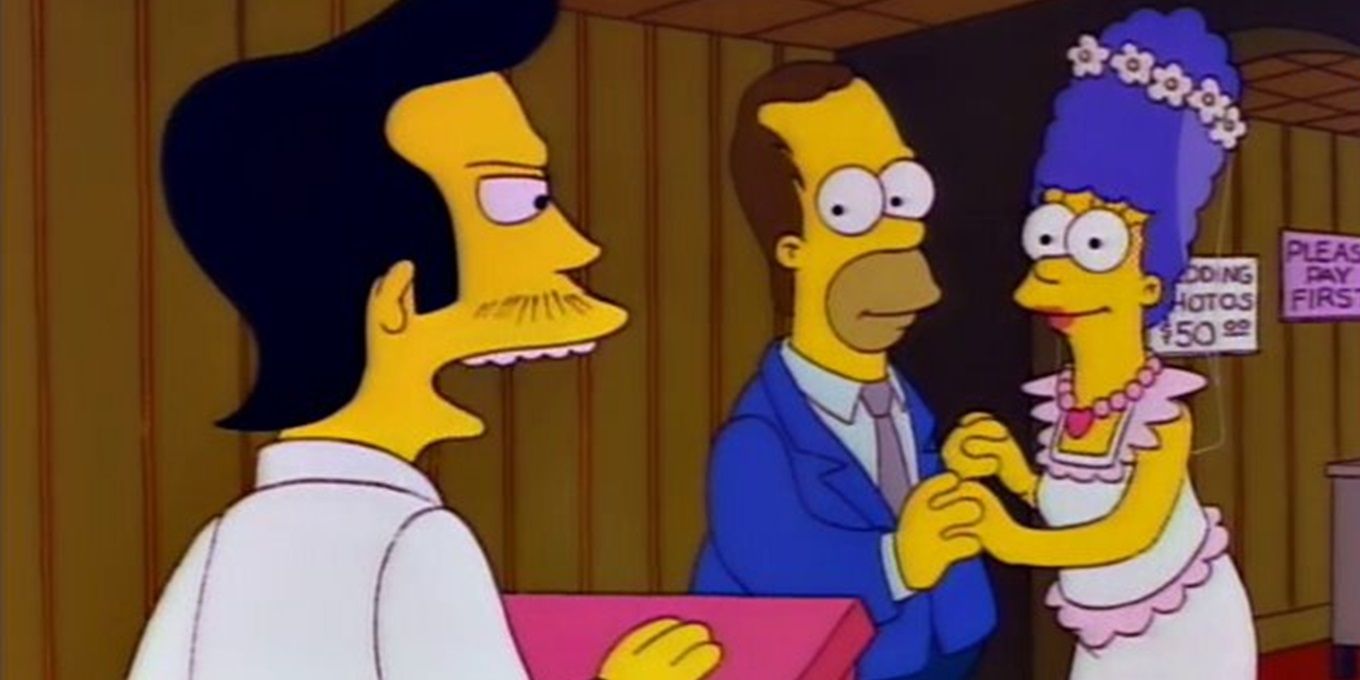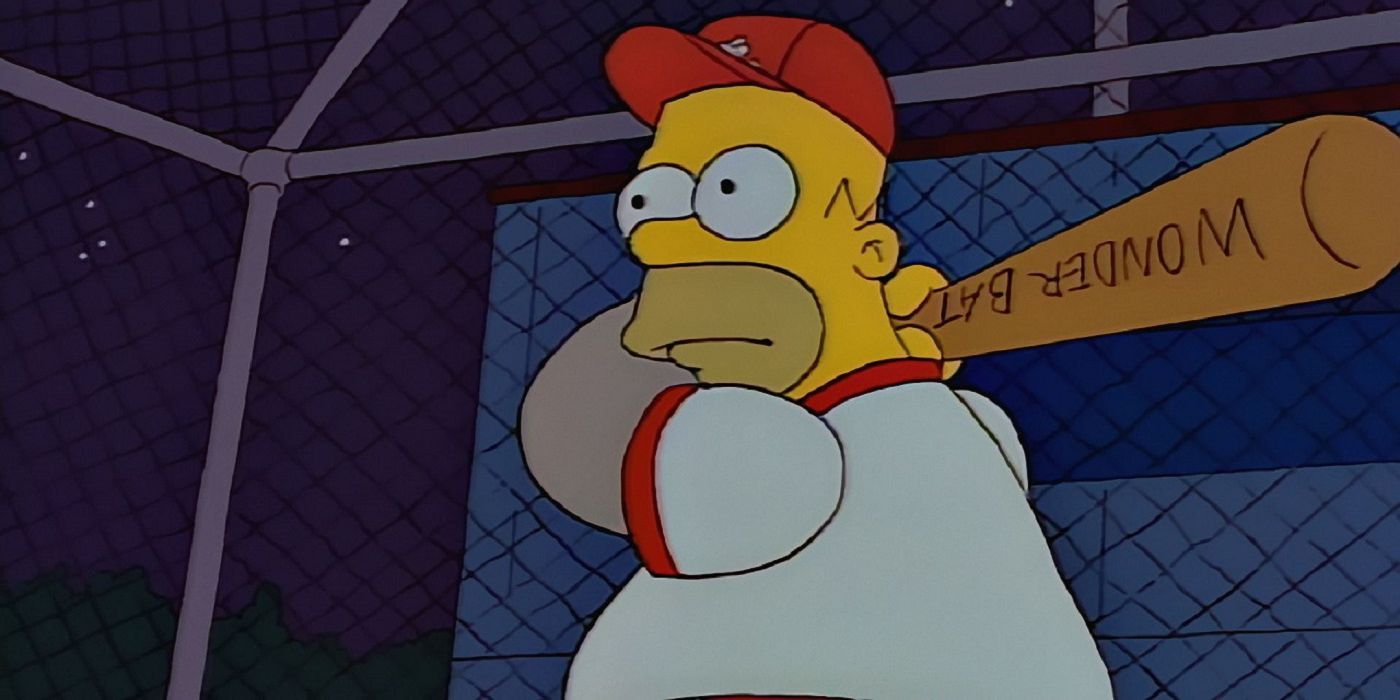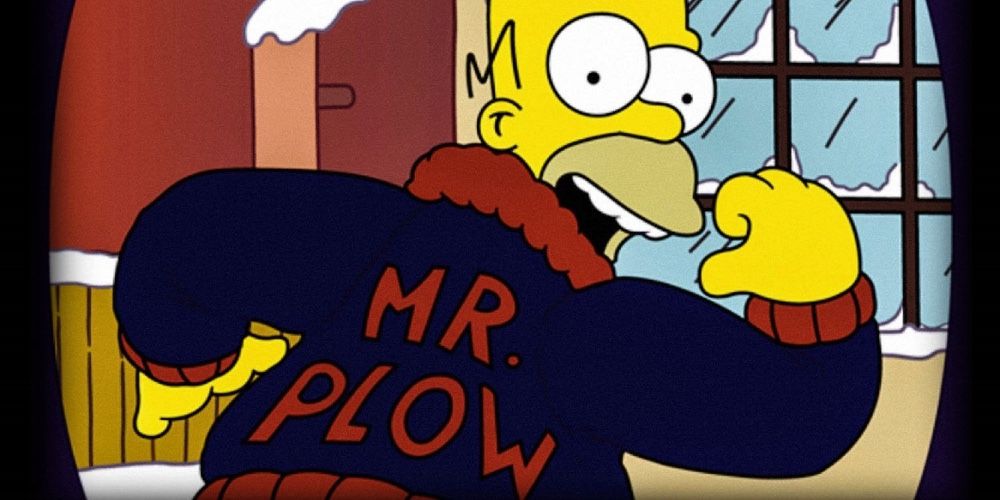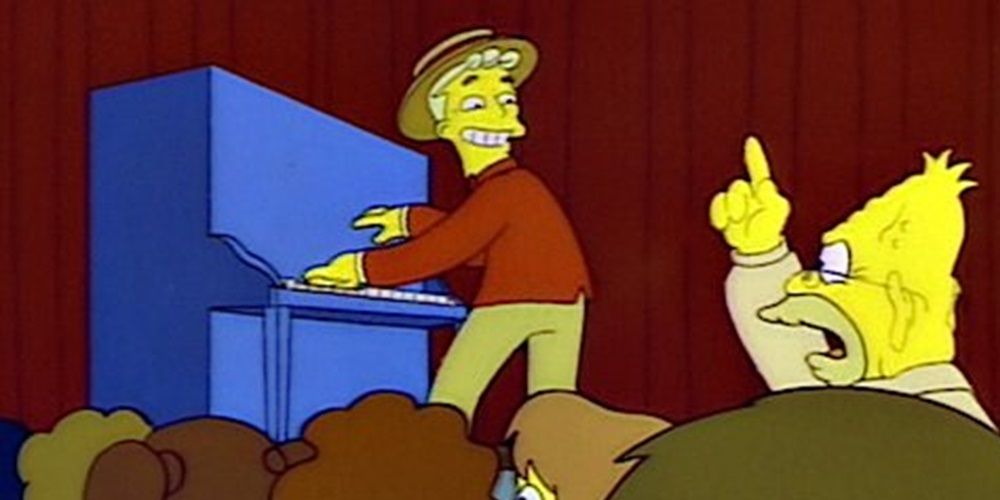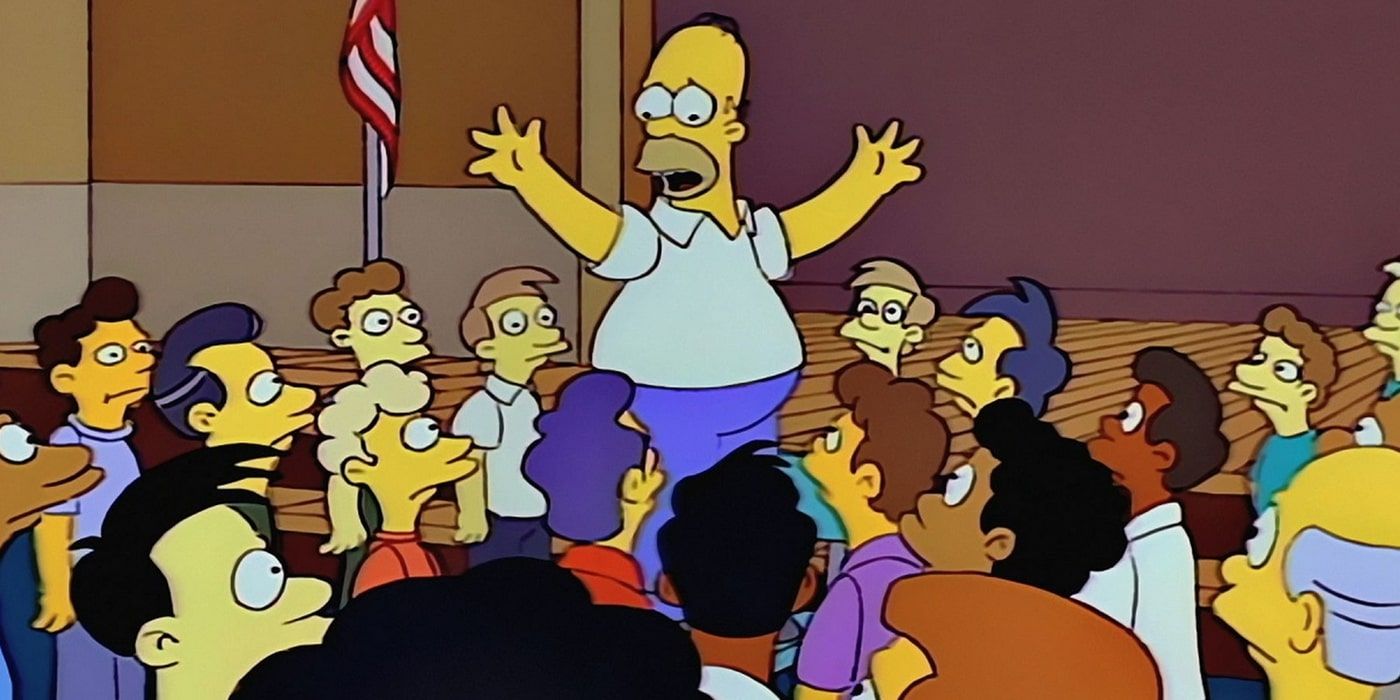Matt Groening’s game-changing cartoon The Simpsons is one of the most popular TV shows of all time. All five of its lead characters are world-renowned icons and plenty of its “Golden Age” episodes have been included on lists of the greatest installments of television to ever hit the airwaves.
But not everybody caught on. These “upper-lower-middle-class” Springfieldians aren’t a staple of every household. Over three decades and more than 700 episodes in, it can be tricky to figure out where to start with The Simpsons. These early episodes make a great jumping-off point.
Simpsons Roasting On An Open Fire (Season 1, Episode 1)
The first episode of the first season might seem like the most obvious place to begin, but The Simpsons got off to a strong start with its Christmas-themed pilot episode, “Simpsons Roasting on an Open Fire.”
The show began as a series of shorts on The Tracey Ullman Show, but those shorts proved to be popular enough for the Simpson family to earn a primetime spot of their own. The first full-length half-hour episode set the tone perfectly, using absurdist humor to mask a very grounded, relatable heart.
Bart Gets An F (Season 2, Episode 1)
By the time The Simpsons aired its second season, Bart had become the show’s breakout character. Season 2 opened with one of the character’s most heartwarming storylines, “Bart Gets an F,” in which he actually tries in his studies in a bid to avoid dire academic consequences.
As Bart knuckles down to work and struggles to stay focused, the episode pushes a surprisingly wholesome message considering the early controversy surrounding Bart’s characterization.
Bart The Daredevil (Season 2, Episode 8)
In season 2’s “Bart the Daredevil,” Bart wants to be a beloved stuntman like Evel Knievel (or, more specifically, his Springfieldian stand-in Lance Murdock), so he pledges to jump Springfield Gorge against his parents’ wishes. Homer steps in at the last second to save his son from risking his life for the fleeting attention of his classmates and ends up accidentally attempting the jump himself.
This marked the first overtly far-fetched slapstick moment of the series. The death-defying climax of “Bart the Daredevil” established how far from realism the writers could get and still snap back into relatable family situations.
The Way We Was (Season 2, Episode 12)
The Simpsons’ first full flashback episode, “The Way We Was,” provides important context for Homer and Marge’s relationship, which is essentially the emotional backbone of the series.
“The Way We Was” was retconned by later episodes, but the season 2 installment still holds up as a moving love story detailing what brought Homer and Marge together and why they continue to stick by each other through thick and thin years down the line.
Lisa’s Substitute (Season 2, Episode 19)
Featuring an uncredited Dustin Hoffman as Miss Hoover’s titular replacement Mr. Bergstrom, “Lisa’s Substitute” demonstrates the show’s ability to bring in A-list guest stars and not rely on their star power alone.
Hoffman gets a substantial role as Mr. Bergstrom, who becomes a father figure to Lisa. Like many one-off Simpsons characters, Bergstrom himself is as memorable as the guest star playing him.
I Married Marge (Season 3, Episode 12)
Another flashback episode providing crucial context on the Simpson family, season 3’s “I Married Marge” details Homer and Marge’s marriage and Bart’s birth. Like all great Simpsons episodes, there’s a big laugh every few seconds, but there’s also a real emotional core: Homer’s reluctance to face up to his newfound responsibilities as a husband and father (which melts away when he holds his son for the first time).
“I Married Marge” was the first of three flashback episodes about the Simpson children’s births – and they’re all worth checking out for burgeoning Simpsons fans.
Homer At The Bat (Season 3, Episode 17)
Season 3’s star-studded sports-themed episode “Homer at the Bat” is a perfect example of the show’s ability to bring in multiple high-profile celebrity guest stars without sacrificing the Simpson family’s core storyline.
Some of the most renowned baseball players of all time appear in “Homer at the Bat” – Don Mattingly, Wade Boggs, Darryl Strawberry, José Canseco – but the writers use their presence to highlight Homer’s struggle to be recognized on the company softball team after Mr. Burns brings in a roster of professional ringers. Of course, the episode also features plenty of great standalone sketches utilizing the Major League cameos.
Mr. Plow (Season 4, Episode 9)
With a catchy jingle, an engaging plot, and a whole bunch of pop culture references, season 4’s “Mr. Plow” is one of the show’s most iconic episodes.
“Homer opens a business” became a common formula for Simpsons storylines – he’s since opened such businesses as a tow truck, an ice cream truck, and a daycare center – but his snowplow business remains his most popular.
Marge Vs. The Monorail (Season 4, Episode 12)
Season 4’s “Marge vs. the Monorail” is often cited as the ultimate episode. It’s a classic example of a Simpsons episode taking a ridiculous premise (the town gets swept up in a snake oil salesman’s dodgy pitch for a monorail system) and wringing every possible laugh out of it.
Homer becomes a conductor, Marge uncovers the conspiracy, and Springfield isn’t as awestruck by Leonard Nimoy as Star Trek fans would expect.
Last Exit To Springfield (Season 4, Episode 17)
One of the perfect Simpsons episodes, season 4’s “Last Exit to Springfield” revolves around Homer assuming leadership of his workers’ union and going on strike against Mr. Burns. The episode exemplifies everything the show does best when it’s firing on all cylinders.
It has countless quotable lines (“Dental plan!...Lisa needs braces...Dental plan!...Lisa needs braces...”) and it’s bolstered by razor-sharp satire of a relevant issue (unionized labor).

